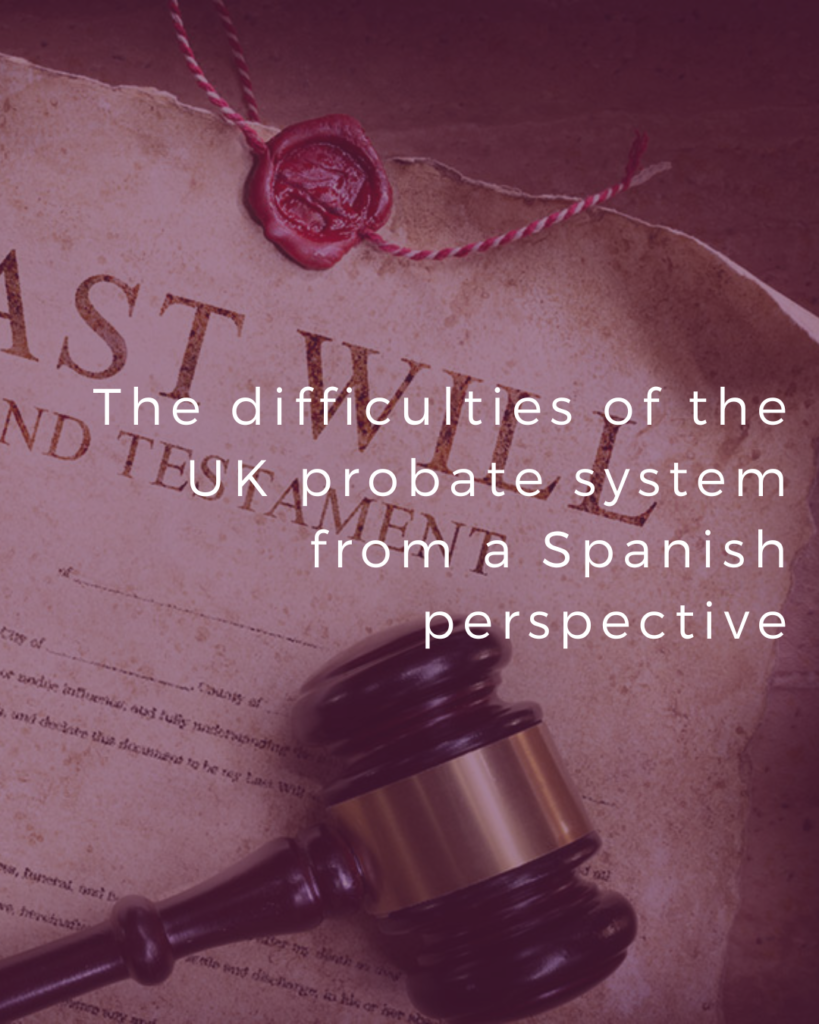Buying a Spanish Business – Letter of Intent. Welcome to the first article in our series on buying a Spanish business. In this series, we discuss in detail all the steps involved in purchasing a business in Spain. These are:
- Send a Letter of Intent (sometimes referred to as a non-binding Indicative Offer)
- Sign a Confidentiality Agreement
- Perform Due Diligence
- Enter Negotiations
- Sign an Acquisition Agreement (Sales and Purchase Agreement)
Buying a business in Spain is a complex process, therefore, it is best to instruct an experienced lawyer early on.
In this article, we cover step one, the letter of intent (LOI) which outlines the preliminary agreement between a buyer and a seller.
What is the purpose of a letter of intent?
A LOI provides a framework for the following legal matters:
- The foundation for the acquisition process. It demonstrates the buyer’s genuine interest in purchasing the business and acts as a formal expression of intent. The LOI illustrates the buyer’s commitment, seriousness, and professionalism when it comes to following through with the transaction.
- In the initial stages of negotiation, maintaining confidentiality is vital. A well-crafted LOI provides a framework for both parties to agree on the non-disclosure of sensitive business information. This ensures that the buyer has access to crucial details about the target company while protecting the seller’s confidential information. Additionally, the LOI may include an exclusivity clause, preventing the seller from engaging in negotiations with other potential buyers during a specified period.
- A letter of intent serves as a roadmap for the transaction, clearly outlining the key terms and conditions of the purchase. It addresses essential aspects such as the purchase price, payment terms, assets included in the deal, assumed liabilities, and any contingencies. By defining these terms upfront, both parties can align their expectations and mitigate potential misunderstandings or disputes when the sale and purchase agreement is drawn up.
- A LOI typically includes provisions for conducting due diligence, allowing the buyer to thoroughly examine the Spanish business’s financial, operational, and legal position. It outlines the scope and timeframe for the due diligence process, ensuring that the buyer has sufficient time to assess the target company’s viability and potential risks.
What are the advantages of a letter of intent for purchasing a business in Spain?
A LOI provides a structure from which the final contract will be drafted. It allows the buyer and seller to save time and resources during the subsequent stages of the acquisition process.
In addition, a LOI allows for flexibility and negotiation between the buyer and seller. Both parties have the opportunity to discuss and refine the terms of the deal before committing to a legally binding agreement. If any disagreements arise during the negotiation phase, the LOI acts as a reference point for finding common ground and ensuring the negotiations remain on track.
What should a letter of intent contain?
When drafting a letter of intent (LOI) for buying a Spanish business, it is crucial to include key terms that outline the framework of the transaction, including (but not limited to):
- Purchase Price – both parties need to agree on the final purchase price. This should be a definite amount, or a formula based on financial metrics. It is important to outline whether the price is for the entire business or for a percentage of ownership.
- Payment Terms – describe how the purchase price will be paid. This can include details regarding the payment schedule, whether it will be made in a lump sum or instalments, and any conditions or contingencies associated with the payment.
- Assets and Liabilities -specify the assets to be included in the purchase, including real estate, equipment, and inventory, as well as intangible assets such as intellectual property rights, trademarks, and customer contracts. Also, address any liabilities that the buyer is willing to assume or exclude.
- Due Diligence – outline the scope and duration of the due diligence process and state the conditions around access to financial records, contracts, leases, and any other documents required to complete the process.
- Confidentiality -include provisions to ensure the confidentiality of sensitive information shared during the negotiation process. Both parties should agree not to disclose any confidential information and take necessary measures to protect trade secrets, financial data, customer lists, and any other proprietary information.
- Exclusivity – consider including an exclusivity clause, which prevents the seller from negotiating with other potential buyers for a specified period. This provides the buyer with a sense of security and allows them to proceed with the due diligence process without competition from other interested parties.
- Conditions Precedent – specify any conditions that must be met before the transaction can proceed. This may include obtaining necessary regulatory approvals, consents from third parties, or satisfactory results from the due diligence process. Outline the timeline and responsibilities for fulfilling these conditions.
- Warranties and Representations – define the warranties and representations expected from the seller regarding the accuracy of financial statements, legal compliance, ownership of assets, and absence of undisclosed liabilities. This ensures that the buyer has recourse if any misrepresentation or breach of warranty occurs.
- Closing and Transition – outline the expected timeline and process for the closing of the transaction. Include provisions for the transfer of ownership, employee contracts, customer relationships, and any necessary licenses or permits. Address the responsibilities and support that the seller will provide during the transition period.
- Governing Law and Jurisdiction – specify the governing law and jurisdiction that will apply to the LOI and any subsequent agreements.
Is a letter of intent legally binding?
No, an LOI does not usually bind the parties legally. However, certain provisions such as confidentiality and exclusivity can be made legally binding so care must be taken when drafting these provisions.
Wrapping up
A letter of intent serves as a critical document for buying a business in Spain. It showcases the buyer’s commitment, sets the framework for negotiation, and establishes the terms and conditions of the purchase. With its ability to foster confidentiality, define key terms, facilitate due diligence, and build trust, the LOI plays a vital role in ensuring a successful acquisition.
Our dual-qualified, multi-lingual commercial barristers and abogadas can advise on and draft a letter of intent for those wishing to purchase a business in Spain. Please contact us on +44 207 043 0648 to make an appointment.
Please note that this article does not constitute legal advice.







